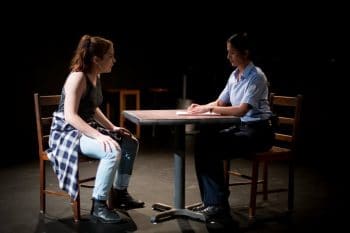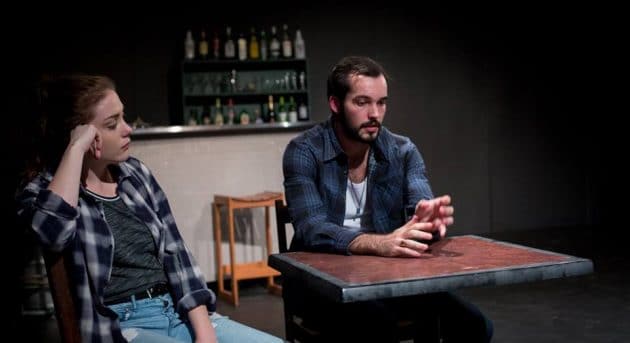Flame Trees – Depot Theatre
Flame Trees, now at the Depot Theatre, follows the journey of a young woman, Tess, returning her small country town following exile for an unforgiveable crime that resulted in the death of her best friend and shook the entire community. It’s a weighty play that considers guilt, forgiveness, family ties, and love.

Unfortunately, it often fails to rise to the gravity of these themes.
While at first the play is compelling in its intrigue, once the crime for which Tess was imprisoned is revealed, the rest of the pieces (a reunion with an old boyfriend, confronting her unforgiving community, confronting family loyalties) fall quickly into place long before the script reveals them, leaving us with a limp story that holds no surprises or reward.
Wayne Tunks has identified some moments of honesty and intimacy in his paint-by-numbers script. Tess (an apathetic Isabel Dickson) and Andy (an underwhelming Jace Pickard) have a turbulent romance that feels dramatically rewarding. However, these moments are scattered sparingly through a narrative that rarely feels real, fuelled by melodrama and dramatic clichés which make it difficult to understand the depths of the town’s grief and Tess’ remorse.

With a shallow script, it’s up to the actors to find some human complexity in the work, and it’s a near impossible task. Dickson has some affecting moments of grief and anger but for the majority of the play Tess feels like a blank slate. Packard’s Andy frequently trades aloofness for absence of feeling but when the two are on the same page, the scenes rise above the material; his scenes with fiancée Monica (Karina Bracken) are a struggle.
Simeon Yialeloglou’s direction does little to aid this muted piece. He helps shade the troubled romance in a compelling way but the rest of the play feels stilted and forced, especially in the play’s denouement, where the stakes are significantly raised and the entire ensemble is required to work together.
The writer, Tunks, who also features in the cast as Tess’ disabled brother, produced the show. It is perhaps because the creative team is too close to the production that it lacks drive and often avoids risk-taking to its detriment.
The premise of the play has great potential – a small country town torn apart by grief and guilt, a wounded lover trying to forgive his girlfriend who has returned, a young girl struggling with the death of her best friend – yet this production is hollow, rather than exciting.




